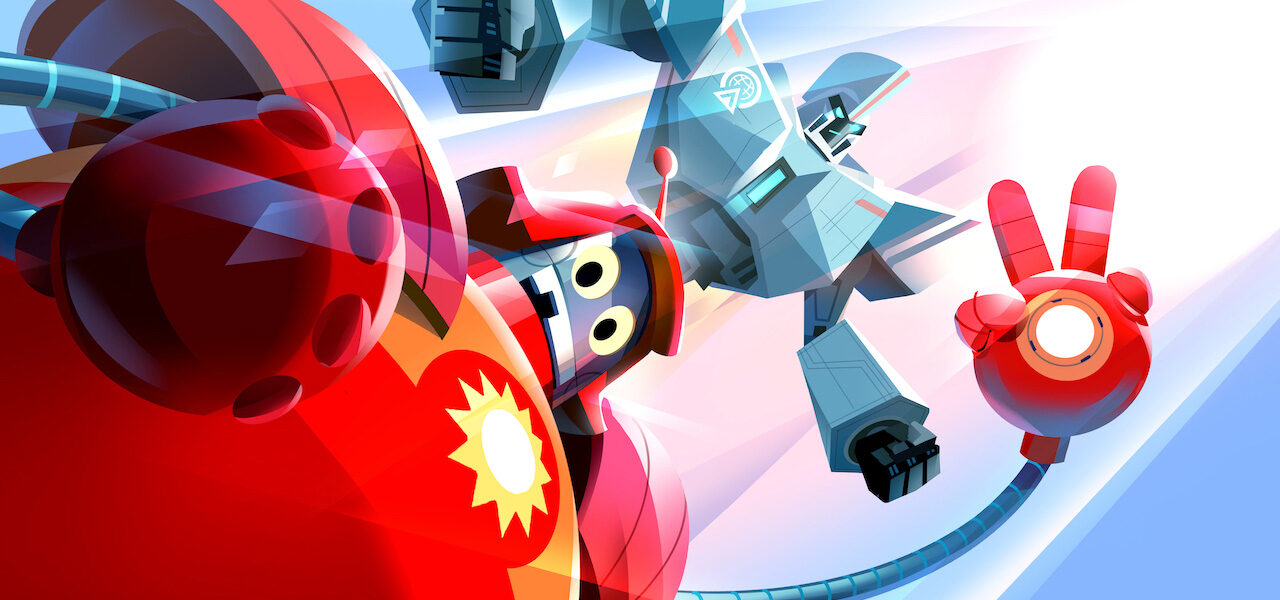

Netflix And Reel FX Tease ‘Super Giant Robot Brothers!’, An Animated Series Made With Unreal Engine
Netflix has released footage of Super Giant Robot Brothers!, its first animated series to use Epic Games’ Unreal Engine throughout the production.
Developed and produced at Dallas-based Reel FX (Rumble, The Book of Life), the ten-episode action-comedy series follows two giant robots who discover they are brothers while defending the world against invading kaiju. It will launch on the streamer this year.
Unreal Engine has released a behind-the-scenes featurette, which features the clip from the show at the end. Watch the video below:
Super Giant Robot Brothers! is directed by Mark Andrews, who won an Oscar as a director on Pixar’s Brave. It is created by executive producers Victor Maldonado and Alfredo Torres. Showrunner Tommy Blacha is also an executive producer, as are Jared Mass and Steve O’Brien from Reel FX Originals.
Some years ago, Andrews had an epiphany: “There’s got to be a way to get that real-time flavor of making the movie in live action and the control that I have in animation, and put them together.” This led him to try virtual production, and specifically the real-time tools offered by Unreal.
Virtual production, the set of techniques that allows filmmakers to visualize and adjust synthetic elements throughout production, is increasingly used in vfx and cg animation. In the featurette, the Super Giant Robot Brothers! crew explains how this worked in practice on their show.
Once the cg assets were created, Andrews directed a live-action shoot that was rendered in real-time animation in Unreal. The team could figure out staging and blocking in detail, by experimenting on set and seeing immediately how this translated to animated visuals. The shoot also allowed for a good deal of improvisation with the cast; the script was continually tweaked along the way.
The actors’ motion-captured performances result in hours of animated footage, which were refined into blueprints for the episodes during editing. “I get all the context of camera moves, of editing language — and that’s all solved before it goes off to your traditional animated process,” says Andrews.
The animators worked from the mo-cap footage, choosing how much of it to incorporate into the final performances. “When you’re animating stuff [traditionally], you construct all that fake stuff: every hand gesture, every head movement — all this incredible tedious stuff,” says showrunner Tommy Blacha. “And this solves a lot of that.”
Unreal Engine, alongside game engine Unity, is driving much of the real-time rendering revolution in the industry. Epic has been awarding generous grants to hundreds of projects that use Unreal, including animation productions.
While Andrews is an animation veteran, the producers believe Unreal opens up animation production to a wider range of filmmakers. “These innovations make animation production more accessible to the live-action filmmaker, allowing them to use their existing toolset and vocabulary to readily direct animated film and television content, and even hire a live action crew for production and editing,” reads a press release.

.png)